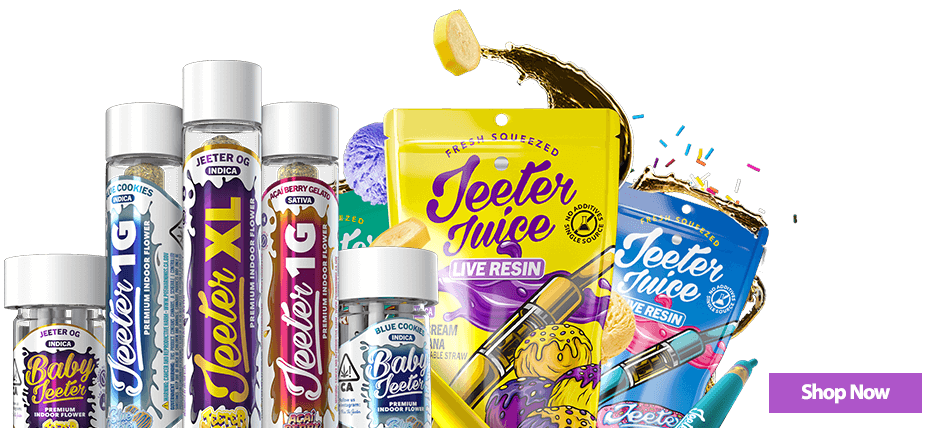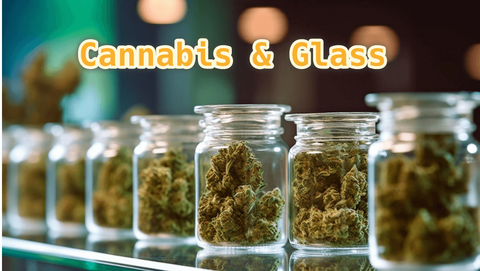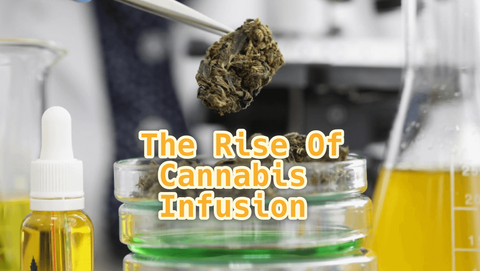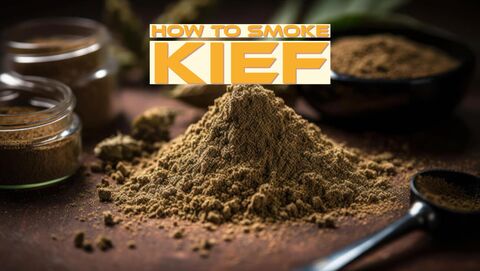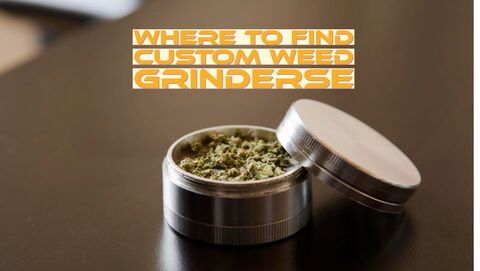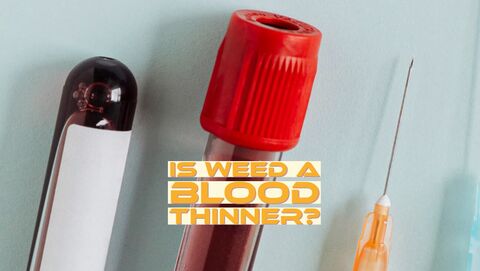Latest Blog Posts
Top rated
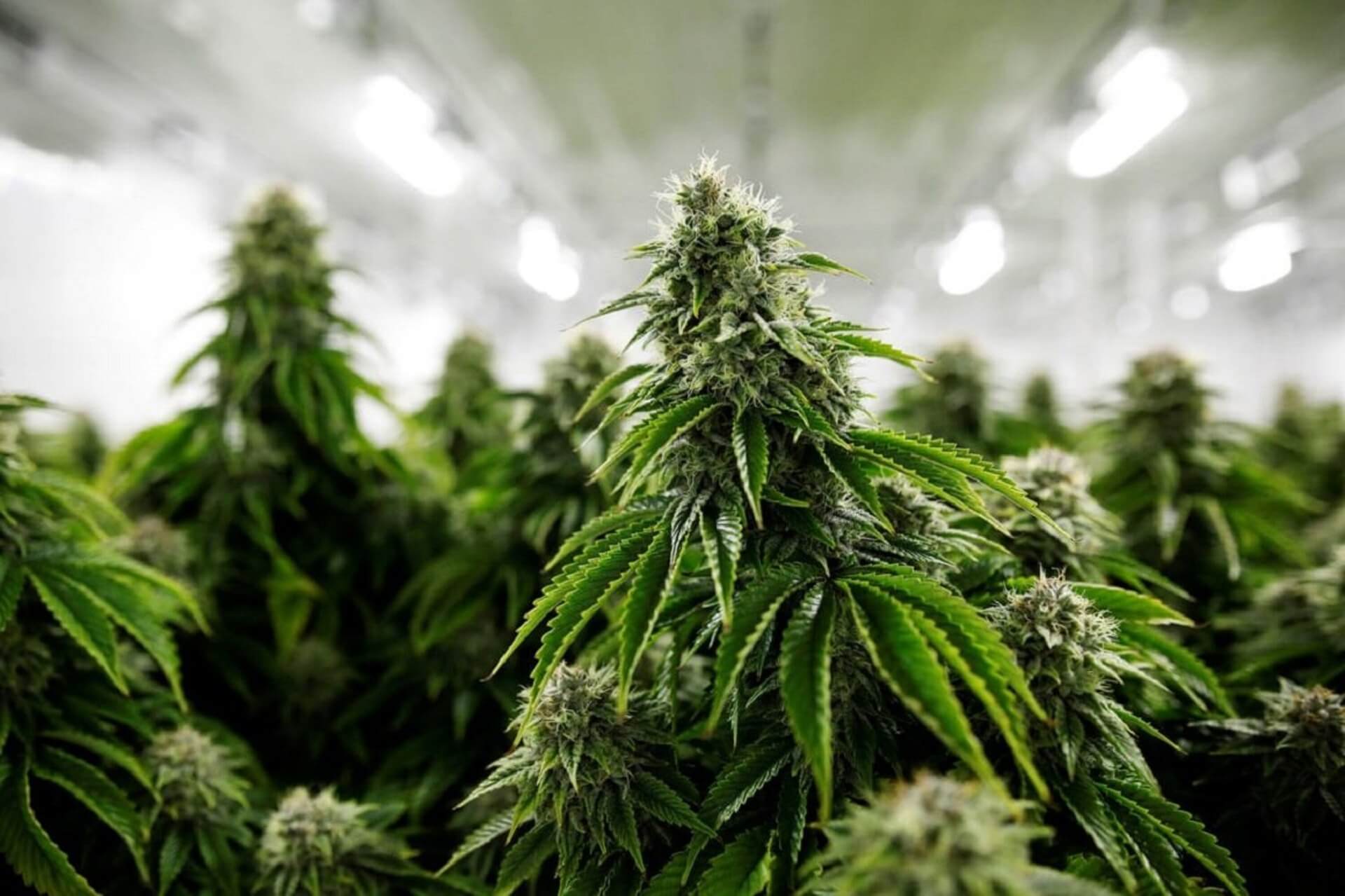
A Brief Comparison of THC and CBD
The two most familiar chemical compounds found in the cannabis plant are CBD and THC. A total of 140 different compounds have been reported to be unique to cannabis, but CBD and THC are present in ample quantities.
According to Daniele Piomelli, Ph.D., Director of the University of California Irvine's Center for the Study of Cannabis, THC and CBD have medicinal properties. Thus, they contribute to the overall medicinal usage of the cannabis plant.
Nearly all cannabis plants have CBD and THC in specific amounts. The amount of CBD and THC present declares cannabis as Hemp or a marijuana plant. Hemp is reportedly legalized across 50 different countries. But marijuana is banned, and it is still considered illegal in most jurisdictions. However, few states and governments have legalized it for recreational and medicinal purposes.
As per Drug Enforcement Administration (DEA), CBD is found abundantly in Hemp. However, if a concentration of more than 0.3% is found, cannabis is regarded as marijuana.
The distinction of the two underlies the simple understanding that CBD doesn't have mental effects, whereas THC is psychotropic. Similarly, when consumed in ample amounts, THC has intoxicating effects. But comparably, when utilized within the defined therapeutic limits, it does not produce intoxicating results.
For decades Piomelli has been researching the plant. According to him, the plant influences our bodies; therefore, we should not ignore the medical significance of cannabis. In other words, Piomelli means that many people believe natural compounds do not harm our bodies, but we need to be very clear while talking about cannabis since it is ancient as a potent plant.
What is THC?
Tetrahydrocannabinol or THC is a psychoactive chemical obtained from the cannabis plant. When ingested either via smoke or through THC products, it stimulates the cannabinoid receptors in the brain. Cannabinoid receptors are components of the endocannabinoid system. Therefore, it impacts the body and brain. Due to the enormity of cannabinoid receptors in the human body, the adverse effects of THC have been widely reported.
Most commonly, THC is responsible for producing recreational benefits in humans such as:
- Hunger
- Euphoria, i.e., a sense of being "high."
- Relaxation
Marijuana is among the Schedule 1 substances, according to federal law. Therefore, no medicinal and medical usage of THC has been accepted. However, the ongoing research has indicated several marijuana benefits that have led to the legalization of THC usage in different states.
Some of the medical uses of THC are as follow:
- THC can reduce nausea
- It stimulates appetite
- It has helped treat spasticity and neuropathic pain
What is CBD?
Cannabidiol or CBD is present in all cannabis plants. However, it is generally found in Hemp compared to marijuana.
Since 2018, the usage of Hemp has been legalized in the United States. The legal use of CBD refers to a condition that states that it is only legalized when it is a part of a product containing less than 0.3% of THC. Since it is a legal substance, the production and dosage of CBD are not governmentally regulated.
CBD is ingested in various forms compared to THC that is generally smoked. One can take in CBD the form of:
- Capsules
- Tincture
- Other means
According to Piomelli, CBD has been reported not to affect dopamine, a neurotransmitter. On the other hand, THC has been found to impact the level of dopamine, thus leading to psychoactive effects. At the same time, CBD has no such psychoactive effects.
The research on CBD is inadequate. This is because researchers believe that CBD does not affect the body, according to Piomelli. However, there are possibly three scientifically established uses for CBD. They are as follows:
- Anti-seizure uses: The only approved use of CBD is Epidiolex. It is an oral solution applied as the medication for two forms of epilepsy. It is generally administered in patients older than two years.
- Anti-anxiety: Recent research has indicated that CBD can alleviate anxiety. But, the topic needs more analysis to prove the efficacy and usage of CBD in such cases.
- Antipsychotic usage: Given the prior uses of CBD, scientists are evaluating more medicinal benefits of CBD. For example, there is a possibility that perhaps CBD could help reduce psychosis, particularly in schizophrenic patients.
Chemical structure of CBD and THC
The chemical formula for CBD and THC is the same. However, the differential arrangement of atoms accounts for the specific applications of the two compounds.
Additionally, the similarity with the endocannabinoid system of the body allows the substances to interact via cannabinoid receptors, thus producing neurotransmitters in the brain.
Psychoactive components in CBD and THC
Although CBD and THC's chemical structure is similar, the psychoactive effects of the two substances are not the same. CBD is psychoactive but not in the same way as THC. It is helpful with anxiety, seizures, and depression. Moreover, CBD is less psychoactive than THC.
THC has prominent psychoactive effects since it binds with cannabinoid receptors in the brain, thus producing euphoria. However, CBD has less affinity for binding with CB1 receptors compared to THC. Instead, it requires THC to bind to the receptor. Thus, contributing to reducing the potential psychoactive effects of THC.
Medical benefits of THC and CBD
The medical benefits of CBD and THC are the same. They can relieve pain. However, the drug’s euphoric effects are related to THC and not CBD. Due to fewer potential side effects, some people prefer to use CBD.
For the first time in 2018, Food and Drug Administration (FDA) approved Epidiolex. As a result, Epidiolex is the first CBD-prescribed medicine. This medicine can treat rare forms of epilepsy.
Medical usage of CBD
Along with this, CBD is also helpful in treating other medical conditions. These include:
- seizures
- pain
- inflammation
- mental disorders or psychosis
- inflammatory bowel disease
- nausea
- depression
- migraine
- anxiety
Medical benefits of THC
Similarly, THC can treat muscle spasticity. Insomnia, low appetite, and nausea are other conditions that are treated using THC. Likewise, the medical implications of THC for dealing with situations like anxiety and glaucoma are also known.
Side effects of CBD and THC
According to research, CBD has no potential side effects. It is tolerable even when ingested in large doses. Suppose if any of the side effects for CBD is found. In that case, it is because of the drug-to-drug interaction, specifically when you are taking other medications in addition to CBD. On the other hand, few temporary side effects have been associated with THC.
THC causes temporary side effects, which include:
- enhanced heart rate
- problems in coordination
- dryness of mouth
- red eyes
- slow reaction time
- loss of memory
- anxiety
The side effects correlated with CBD may include:
- changes in appetite
- fatigue and lethargy
- weight loss
- dizziness
- diarrhea
The reported side effects are due to the psychoactive attributes of the compound. But, neither CBD nor THC is fatal.
THC, when used for an extended period, might produce adverse psychiatric effects that are long-lasting. However, the premise that cannabis is responsible for creating psychiatric disorders like schizophrenia has not been conclusively established.
Drug testing for CBD and THC
We know now that CBD and THC are cannabinoids, and our body stores such compounds in the body's fat. So even if you have used them a few weeks before, they can still show up in drug tests.
On the other hand, every drug test cannot detect CBD stored in the body. Therefore, only CBD-sensitive tests can catch them. However, standard drug tests detect THC chemicals and screen marijuana or THC in drug test reports.
In addition, Hemp produces CBD and THC, so a drug test could show a positive result for THC even if it has not been used. It is also noteworthy that some products that claim to be free of THC might not be: THC-free.
The correlation between CBD and THC
Naturally, cannabis plants have equal amounts of substances like THC and CBD. But, humans have successfully engineered various breeds of cannabis that are either high in THC (marijuana) or CBD (Hemp).
As per Piomelli, there are varying quantities of THC and CBD. In addition to their concentration, it results from variations in the distinct strains.
Although scientists have detected no discrimination between the strains, different concentrations can produce different results. For instance, CBD and THC have similar effects on cannabinoid receptors. This information imparts that marijuana rich in CBD could have less psychoactive effects compared to marijuana that has a lower concentration of CBD, indicating that CBD is responsible for blocking THC effects.
The Bottom Line
The two main chemical elements of the cannabis plant, THC and CBD, have apparent medical benefits. However, insufficient research and evidence are available since their usage has been historically banned.
Hemp is reportedly high in CBD, and it was illegal on the federal level until 2018. In contrast, marijuana is still regarded as illegal at the national level but permitted for recreational purposes in 18 states, including Washington D.C and other states.
Though the research and available data are not sufficient to support the medical and health benefits of cannabis, the broader understanding developed so far indicates that THC is psychoactive compared to CBD, which does not have reported psychoactive elements. In addition, THC is still illegal, while CBD has been legalized in many areas of the world.
Disclaimer: This material is for informational purposes only and should not be relied on for legal, medical, financial, or any other form of professional advice.

